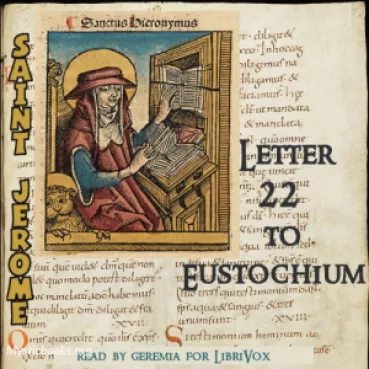
Timeline
Title
Country/Nationality
Saint Jerome
Saint Jerome was a prominent Christian scholar and theologian who lived in the 4th and 5th centuries AD. He is particularly renowned for his translations of the Bible into Latin, which would go on to become the standard version used by the Western Church for centuries to come.
Born in present-day Croatia, Saint Jerome received a classical education and was fluent in several languages, including Greek and Hebrew. After a period of wandering and spiritual searching, he converted to Christianity and became a monk, eventually moving to Rome where he served as a secretary and advisor to Pope Damasus I.
Jerome's most notable contribution to Christian theology was his translation of the Bible from Hebrew and Greek into Latin, known as the Vulgate. This was a massive undertaking that took him over 20 years to complete, but it would have a profound impact on the development of Western Christianity. The Vulgate became the standard version of the Bible used in the Western Church, and it helped to unify and standardize Christian doctrine and practice.
In addition to his translation work, Saint Jerome was a prolific writer and theologian in his own right. He wrote numerous treatises on Christian doctrine, as well as biographies of important figures in the Church. He was also a fierce advocate for monasticism, and he played a key role in the spread of this movement throughout the Western Church.
One of the core principles that guided Saint Jerome's work was his belief in the importance of a disciplined and ascetic lifestyle. He saw monasticism as a way to cultivate spiritual discipline and to distance oneself from the distractions and temptations of the world. This emphasis on discipline and self-control was reflected in his own life, as he was known for his rigorous and austere lifestyle.
Saint Jerome died in Bethlehem in 420 AD, where he had spent the latter part of his life studying and writing. He was canonized as a saint by the Catholic Church, and he is remembered for his immense contributions to Christian theology and scholarship. His translations of the Bible into Latin would go on to have a profound impact on the development of Western Christianity, and his writings on monasticism continue to inspire and guide those who seek a disciplined and ascetic way of life.
A fun fact about Saint Jerome is that he was known for his sharp wit and acerbic tongue. He was not afraid to criticize those he saw as misguided or hypocritical, and he often used biting sarcasm in his writings to make his points. This wit and sharpness of tongue have made him a popular figure in literature and culture, and his writings continue to be read and admired by scholars and laypeople alike.
Books by Saint Jerome

Letter 22 to Eustochium
It is a letter written to a young woman named Eustochium. It is one of many letters that Jerome wrote throughout his life, but it is particularly notable for its insights into his thoughts on the Christian life and the importance of asceticism. The...

Against Jovinianus
Against Jovinianus is a theological treatise written by Saint Jerome in response to the teachings of Jovinianus, a Christian monk who held controversial views on marriage, virginity, and the nature of sin. Jerome's work is a passionate defense of tra...

Life of St. Hilarion
The Life of St. Hilarion by Saint Jerome is a biography of the founder of Palestinian monasticism. Hilarion was born in Gaza to pagan parents, but converted to Christianity after hearing of the life of St. Anthony the Great. He spent most of his life...

Illustrious Men (De Viris Illustribus)
Saint Jerome's *De Viris Illustribus* (Illustrious Men) presents a collection of concise biographies of prominent figures from the early Christian world. It encompasses both Christian and non-Christian figures, including apostles, early Church Fathe...

Perpetual Virginity of Blessed Mary
This book, written by Saint Jerome, addresses the debate surrounding the perpetual virginity of the Virgin Mary. It refutes the arguments of Helvidius, who claimed that Mary had other children with Joseph, by presenting three main propositions: Josep...